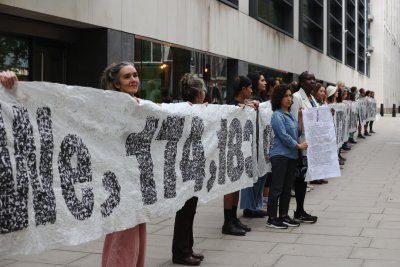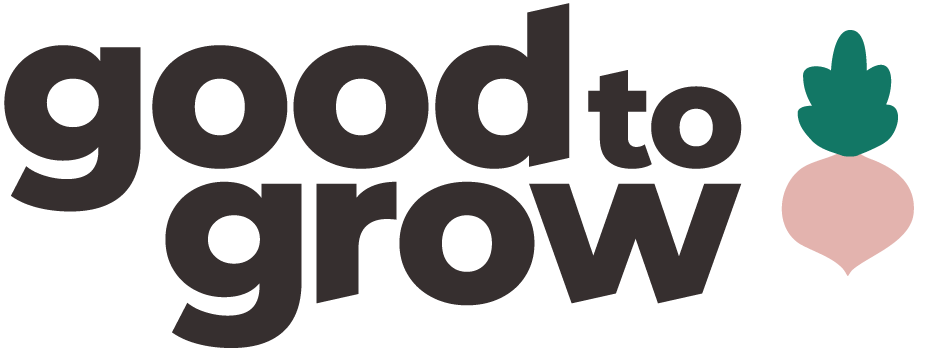Artists present Govt with living protest piece after data shows allotment lists doubled in 10 years
The artists worked in partnership with Greenpeace after research showed that 174,183 people are currently on allotment waiting lists in England, Scotland and Wales, almost double the number in 2011.

An artist collective presented the Department of Levelling Up, Housing and Communities with a 30ft seed paper banner last week as part of an ongoing campaign by Greenpeace. Seed clusters and ash collected from scorched Amazonian forests were used to create the banner’s text “We the 174,183 demand allotments”, in reference to the number of people currently sat on local authority allotment waiting lists.
The artists planted a similar banner in a disused plot of land at a Tesco site near Liverpool earlier this month “in an act of defiance against the industrial food industry” which is responsible for more than a quarter of all global greenhouse gas emissions.
One of the lead artists, JC Niala, said:
With the acceleration of climate change and the persistence of structural inequality within the UK and globally, food has become both an emblem and an embodiment of the troubles around us.
Allotments quite literally provide a lifeline for some. They bring good local food back to people and take away the bad taste of the global industrial food system. They improve people’s mental health and wellbeing by creating a sense of purpose and increasing opportunities to connect with others as well as spend time in nature.
Everyone has the legal right to request an allotment and councils are legally obliged to provide a sufficient number of allotments. A little known fact is that if six people from different households apply for an allotment together, their council has an obligation under the 1908 allotment act to find them a space.”
Sustain’s Capital Growth and the Sustainable Food Places Good to Grow network have also supported a focus community gardens in response to the huge demand for places to grow food.
Sarah Williams, Programmes Director at Sustain said:
This new data highlights the need we see in our work, for more access to land and for more areas to follow Hull City Council in establishing a Right to Grow in the UK, which was passed with support from Sustain alliance member Incredible Edible.
Daniela Montalto, Greenpeace UK forests campaigner, said:
Allotment waiting lists demonstrate a huge desire from people to be part of the solution to our broken food system but without access to land, the many benefits of community food growing to people, nature and the climate are being stifled. The government must support councils to act as well as take seriously its own role in creating systemic and lasting change to the food system.
Crucial steps include proper support for farmers to transition to climate-, people- and nature-friendly farming as well as measures to reduce our climate footprint abroad including a ban on imports of soya and other agricultural commodities that drive deforestation in places like Brazil.
The Waiting List was created by JC Niala in collaboration with artists Julia Utreras and Sam Skinner as part of a series of artist-led interventions supported by Greenpeace UK that aims to create work to respond and disrupt the injustices build into industrial food systems. In acknowledgement of these injustices, all work in the series prioritises the perspectives of artists and activists who self-identify as Black, Indigenous, people of colour and/or working class. A total of 5 pieces of work will be unveiled from September to December this year as part of the programme.
23/10/2023


